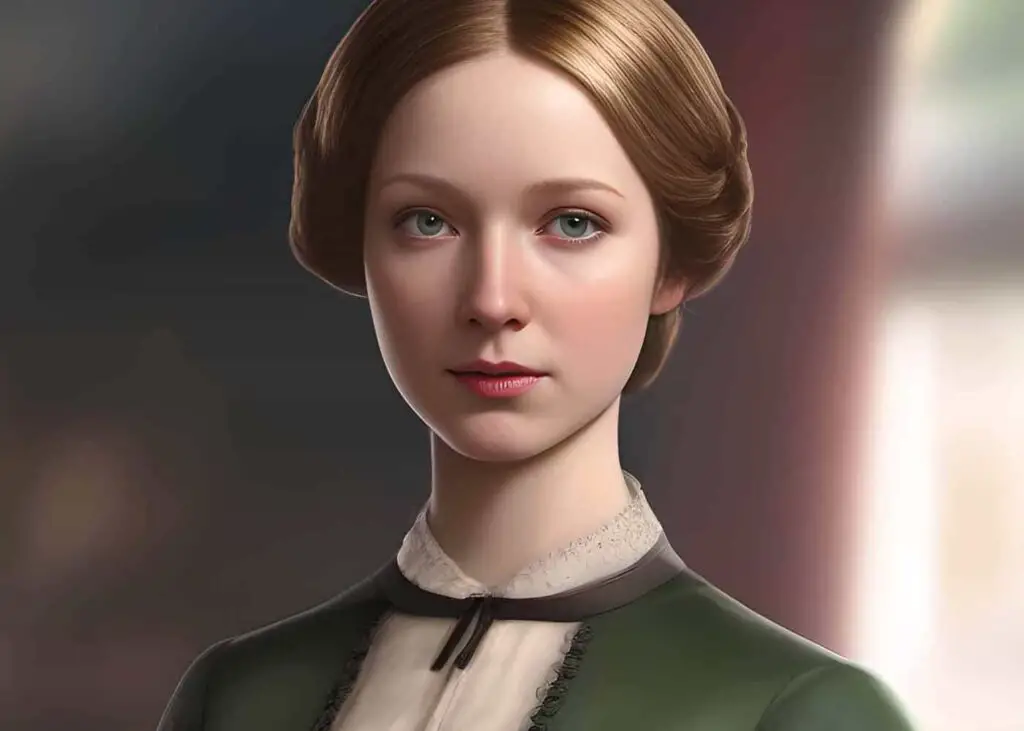
Best Charlotte Brontë Poems
Embark on a literary journey through the best Charlotte Brontë poems, where each verse offers a window into the soul of one of the most esteemed novelists of the Victorian era. Charlotte Brontë, renowned as a titan of Victorian literature, initially graced the literary stage not through her celebrated novels, but through a collection of poetry.
Alongside her sisters Emily and Anne, who were also distinguished poets and novelists, she published a volume titled Poems by Currer, Ellis, and Acton Bell in 1846. Currer, Ellis, and Acton Bell are the male pseudonyms of Charlotte, Emily, and Anne Brontë. The pseudonymous publication, a bold foray into a male-dominated literary world, received little attention at the time, selling only two copies. Despite this lukewarm reception, the collection was a crucible for the sisters’ burgeoning literary talents, and it showcased Charlotte’s poetic prowess.
Her poetry, though less well-known than her novels, offers a window into her soulful depths and showcases her prowess as a writer. The poems of Charlotte Brontë are marked by their emotional intensity, introspective nature, and often somber tones, reflecting the personal hardships she endured throughout her life.
1. Delving into the Best Charlotte Brontë Poems
Charlotte Brontë’s poems offer a rich journey through a landscape filled with deep emotions, vivid imagery, and profound introspection. Her ability to craft verses that are both deeply personal and universally resonant ensures that her poetry, much like her novels, continues to captivate and inspire readers today. Each poem, a world unto itself, invites us to explore the myriad facets of the human heart as seen through the eyes of one of literature’s most enduring voices.
“Presentiment”
“Presentiment” is a somber reflection on the anticipation of sorrow. Brontë personifies this feeling, imbuing it with a presence that seems to overshadow the present joys.
Brontë’s deft use of personification in this poem allows readers to feel the oppressive weight of impending grief. The poetic device serves as a bridge connecting the reader’s empathy with Brontë’s own experiences of loss and foreboding.
“The Missionary”
This narrative poem unfolds the inner turmoil of a missionary caught between his duty and his earthly desires. Set against an exotic backdrop, the poem weaves a tale of faith, isolation, and the human condition.
Brontë’s “The Missionary” goes beyond religious commentary, diving into the psyche of a man torn between two worlds. It’s a poignant exploration of the universal struggle between passion and responsibility, highlighting Brontë’s narrative prowess within her poetry.
“Regret”
“Regret” explores the poignant theme of lost time and missed opportunities. The poem is a lament, a reflection on life’s fleeting nature, and a yearning for moments gone by.
The universality of this poem’s theme allows it to resonate across time. It’s a meditation on the human inclination to look back with longing, a sentiment that surely paralleled Brontë’s reflective nature.
“Life”
In a rare optimistic turn, “Life” juxtaposes the trials of existence with its beauty. Brontë encourages the reader to embrace life’s vicissitudes with hope and strength.
This poem showcases Brontë’s ability to recognize life’s duality. It reflects a mature acceptance and a resolve to face life’s challenges, a message that remains relevant and inspiring.
“Pilate’s Wife’s Dream”
Through this poem, Brontë takes us through the turbulent dream of Pontius Pilate’s wife, as recounted in the Bible. It’s a dramatic and emotional piece that explores the foreboding and guilt associated with the crucifixion of Jesus.
Brontë’s exploration of Pilate’s wife’s perspective is a striking example of her ability to infuse historical and biblical narratives with rich emotional layers. The poem delves into themes of premonition, powerlessness, and the burden of knowledge, reflecting Bronte’s fascination with the moral and spiritual dilemmas faced by individuals.
“Passion”
Unlike her other poetry, which often veils emotion in subdued tones, “Passion” is a fervent outpouring of intense feelings. Brontë writes of the consuming nature of such emotions and their power to overwhelm.
In “Passion,” we see a different side of Brontë, one that is bold and unrestrained. The poem can be seen as an expression of the inner fires that fueled her creativity and her life, showcasing the breadth of her emotional range.
“Evening Solace”
“Evening Solace” captures the reflective mood of the evening, offering a sense of comfort in the face of life’s hardships.
Brontë’s poem is a meditation on finding peace and consolation in the quiet moments at the day’s end. It reflects her search for solace amid the trials of her life, suggesting a universal need for moments of reflection and the hope of transcendence.
You might be interested: List of Charlotte Brontë’s poems
3. Charlotte Brontë’s Poetry in the Context of Her Life
Charlotte Brontë’s poetry often mirrors the experiences and trials she faced in her life. The loss of her mother and siblings, her unrequited love for a married professor, and her experiences at a harsh boarding school all found their way into her verses. These personal elements infused her poetry with authenticity and depth, making them a rich, if somber, tapestry of the human experience.
4. The Legacy of Charlotte Bronte’s Poetry
While Charlotte Brontë is primarily remembered for her novels, her poems remain a testament to her literary skill. Her poetry has continued to attract scholarly attention and offers readers another dimension to her creative genius. It’s a body of work that complements her novels and provides a fuller understanding of Bronte as a writer and as a person.
5. Conclusion
Charlotte Brontë’s poetry, marked by its emotional resonance and lyrical beauty, remains a valuable part of her literary legacy. Just as her novels have stood the test of time, her poems continue to be celebrated for their introspective insight and emotive power. They are verses that not only complement the narratives of her prose but also stand alone as works of poignant artistry, offering timeless reflections on life, love, and loss.
You might be interested: Poems by Currer, Ellis, and Acton Bell is available for free at PageVio.